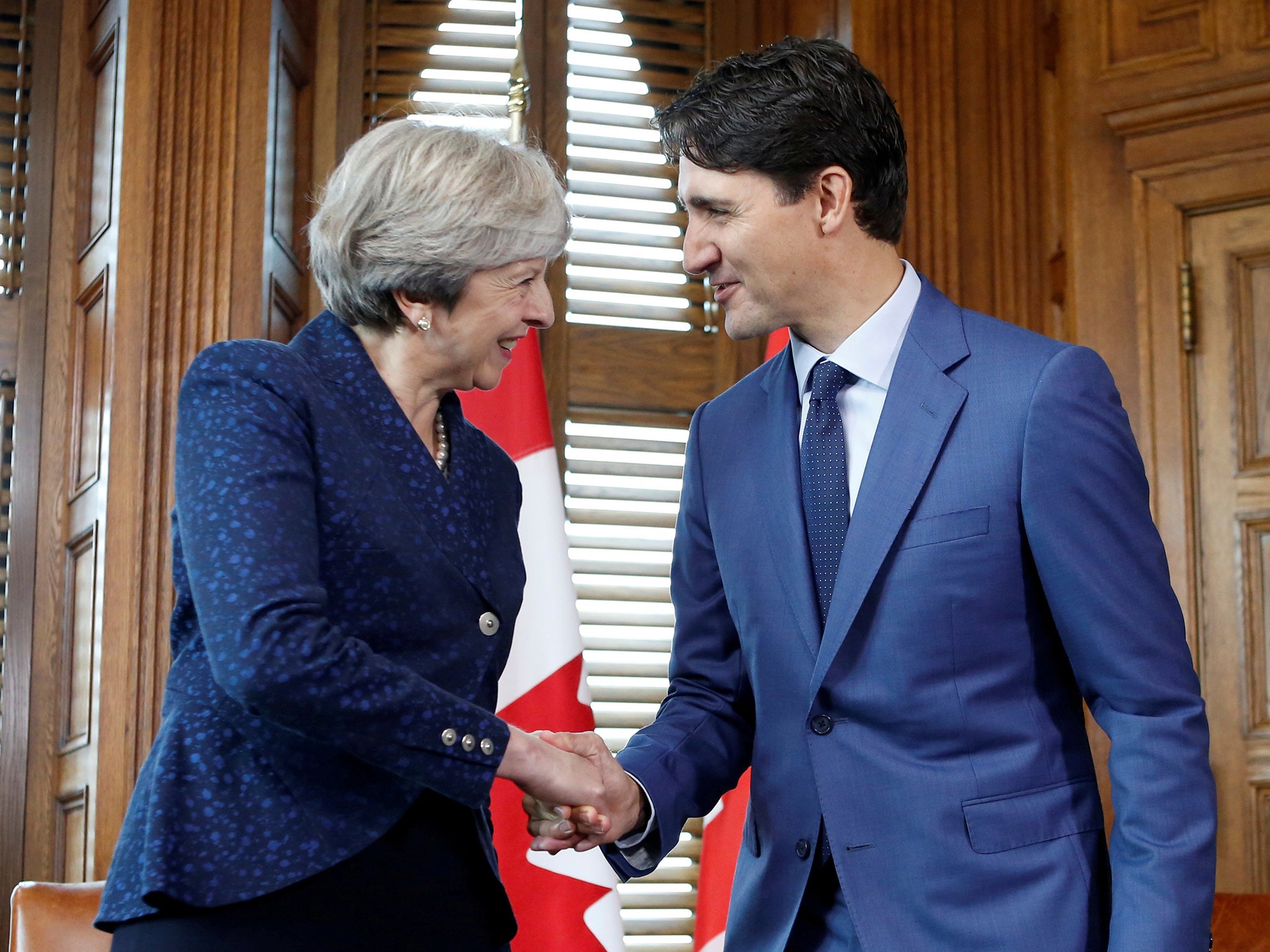Brexit boost for Theresa May as Justin Trudeau promises 'seamless' trade deal
Ceta will 'form the basis for the way we move forward in the post-Brexit world', says Canadian PM

Your support helps us to tell the story
From reproductive rights to climate change to Big Tech, The Independent is on the ground when the story is developing. Whether it's investigating the financials of Elon Musk's pro-Trump PAC or producing our latest documentary, 'The A Word', which shines a light on the American women fighting for reproductive rights, we know how important it is to parse out the facts from the messaging.
At such a critical moment in US history, we need reporters on the ground. Your donation allows us to keep sending journalists to speak to both sides of the story.
The Independent is trusted by Americans across the entire political spectrum. And unlike many other quality news outlets, we choose not to lock Americans out of our reporting and analysis with paywalls. We believe quality journalism should be available to everyone, paid for by those who can afford it.
Your support makes all the difference.Canada’s prime minister has handed Theresa May a Brexit boost by calling for a “seamless transition” to a new trading relationship with the UK.
Justin Trudeau predicted a smooth process to carry over his country’s new trade agreement with the EU, which will eliminate 98 per cent of Canadian import duties.
The Comprehensive Economic and Trade Agreement (Ceta) took seven years to negotiate – raising fears that the UK could take a long time to replace it after Brexit.
But, speaking ahead of meeting with Ms May in Ottawa, Mr Trudeau forecast a “seamless transition” that would prevent the benefits of the deal being lost to Britain.
Later, at a joint press conference, he said: “Within the EU, the UK is the largest trading partner that Canada has.
“So the UK was deeply involved throughout the negotiations towards Ceta as they proceeded over the last seven years.”
Mr Trudeau said Ceta would “form the basis for the way we move forward in the post-Brexit world”.
However, he did hint at some changes, adding: “After that, there will obviously be opportunities for us to look at particular details that could be improved upon for the specific needs and opportunities in the bilateral relationship between the UK and Canada.”
Ms May, speaking alongside him, also predicted a seamless process, saying: “People will know the basis on which that trading relationship will be set up.
“We will be having a working group, which obviously will be looking at the details of how that transition will operate in detail.”
The two leaders announced they were setting up a joint working group to prepare the ground for a bilateral deal based on Ceta, to be signed soon after Brexit.
Nevertheless, the likelihood of carrying over Ceta will trigger renewed criticism that Brexit involves “cutting and pasting” existing EU deals that would otherwise be lost after 2019.
Critics say that falls far short of the original promise made by Brexit supporters that leaving would allow the UK to significantly boost its overall trade, free from EU shackles.
In 2013, the UK Government estimated that the Ceta deal would increase UK exports to Canada by 29 per cent.
The Open Britain group, which campaigns against a hard Brexit, said this meant it was likely boost UK exports by £2.2bn – a gain now being put at risk.
Ahead of the Prime Minister’s visit, the Liberal Democrat Brexit spokesperson Tom Brake accused her of “racking up air miles trying to recreate what we already have”.
“This copy-and-paste Brexit is a huge waste of time and resources. Can ministers point to a single country that has responded to their plea for new and improved trade deals?” he added.
Join our commenting forum
Join thought-provoking conversations, follow other Independent readers and see their replies
Comments